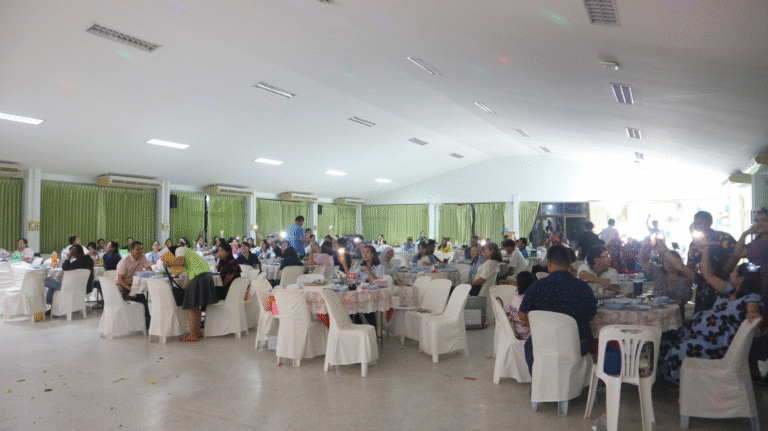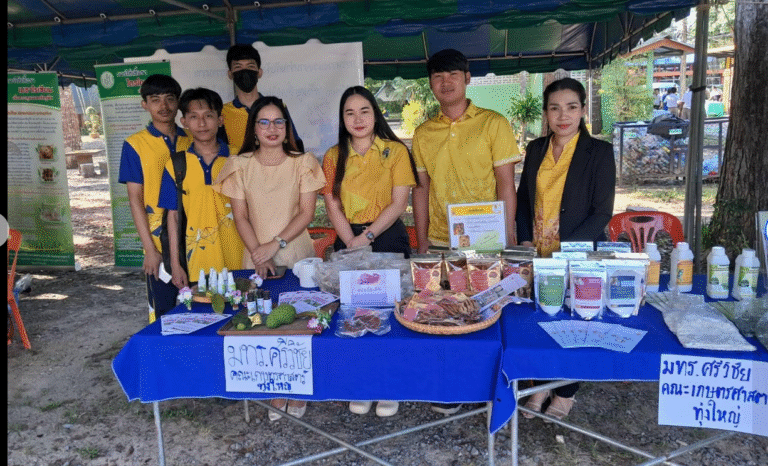Reporters : Dr. Lamun Kayurin
Date :January -December 2024
Related SDGs: 
Indicators : 17.4, 17.4.3
RUTS has dedicated outreach educational activities for the wider community which include alumni, local residents, displaced people.
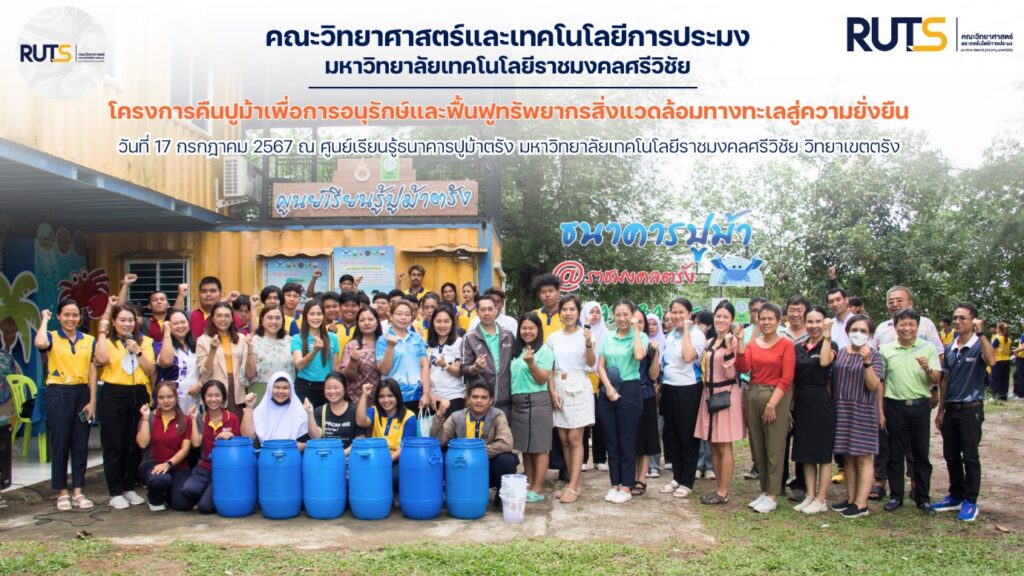
Rajamangala University of Technology Srivijaya has launched a comprehensive initiative aimed at restoring and conserving blue crab population within local coastal ecosystems. This project integrates scientific research, sustainable resource management, and community engagement to support the long-term viability of blue crab habitats. Through collaboration with local fishermen, community leader and environmental agencies, RUTS promotes responsible harvesting practices, habitat protection, and reintroduction of juvenile crabs into natural environments. The initiative not only strengthens marine biodiversity but also enhances local livelihoods by ensuring the sustainability of coastal resources for future generations. For example, The blue swimming crab (Portunus pelagicus) is an ecologically and economically important species in tropical coastal ecosystems. In Thailand, it is widely distributed along the coastline and represents a major seafood resource, supporting strong demand in both domestic and export markets. Its fishery generates billions of baht in annual revenue for the country.
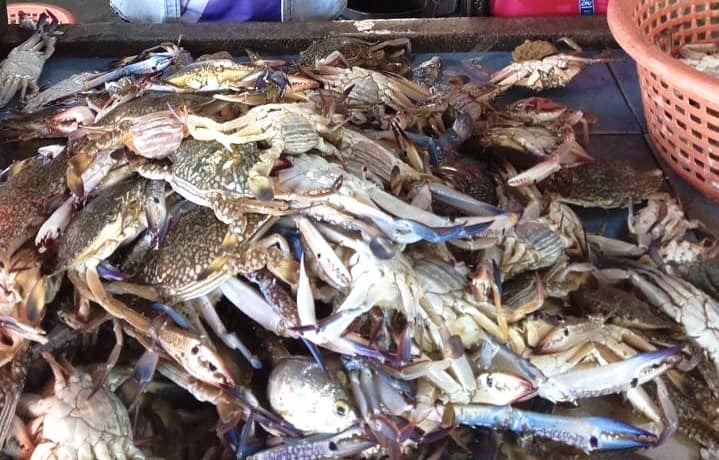
In response to the decline in blue swimming crab populations, Rajamangala University of Technology Srivijaya (RUTS) initiated the “RUTS Crab Bank Project” as part of a national resource restoration effort. This community-based program focuses on addressing local social needs, strengthening partnerships, and enhancing stakeholder participation. Supported by the National Research Council of Thailand and the Ministry of Science and Technology, the project aims to conserve blue swimming crab stocks and promote sustainable fisheries practices among local fishers.
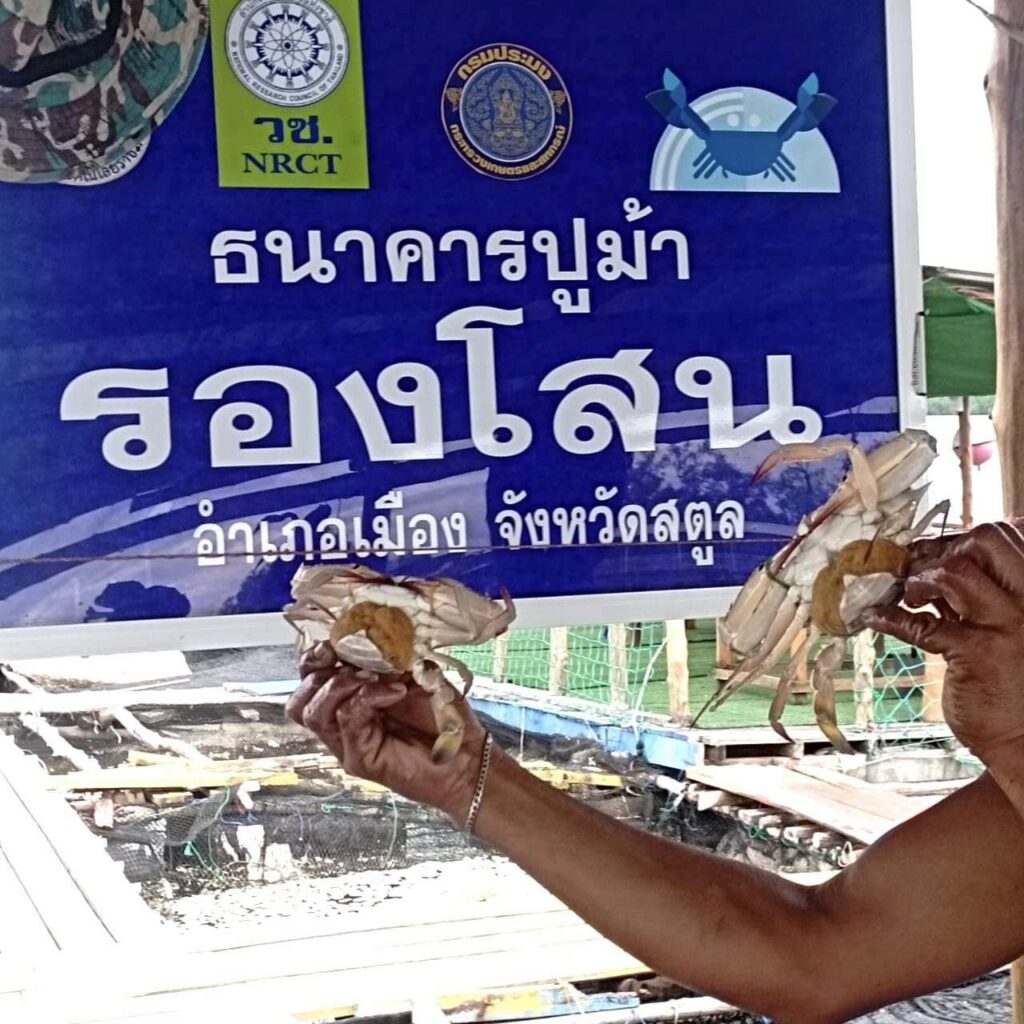
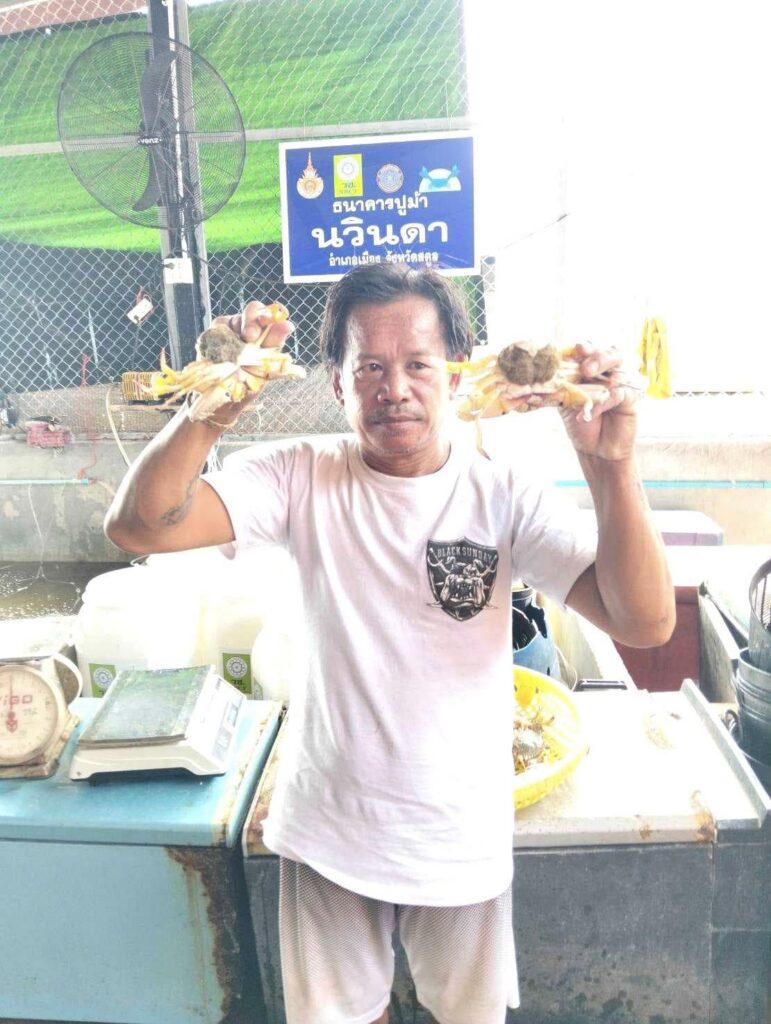
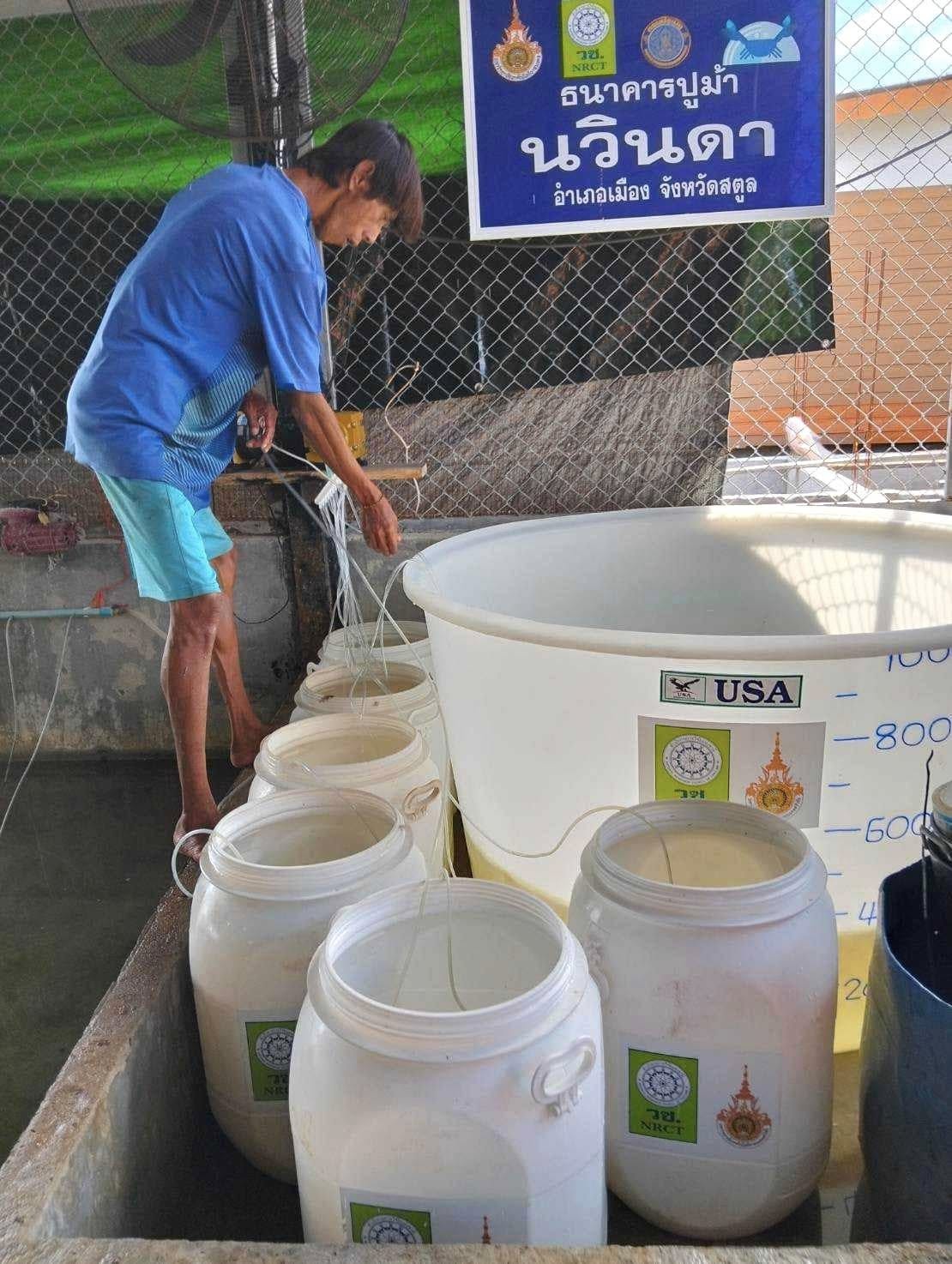
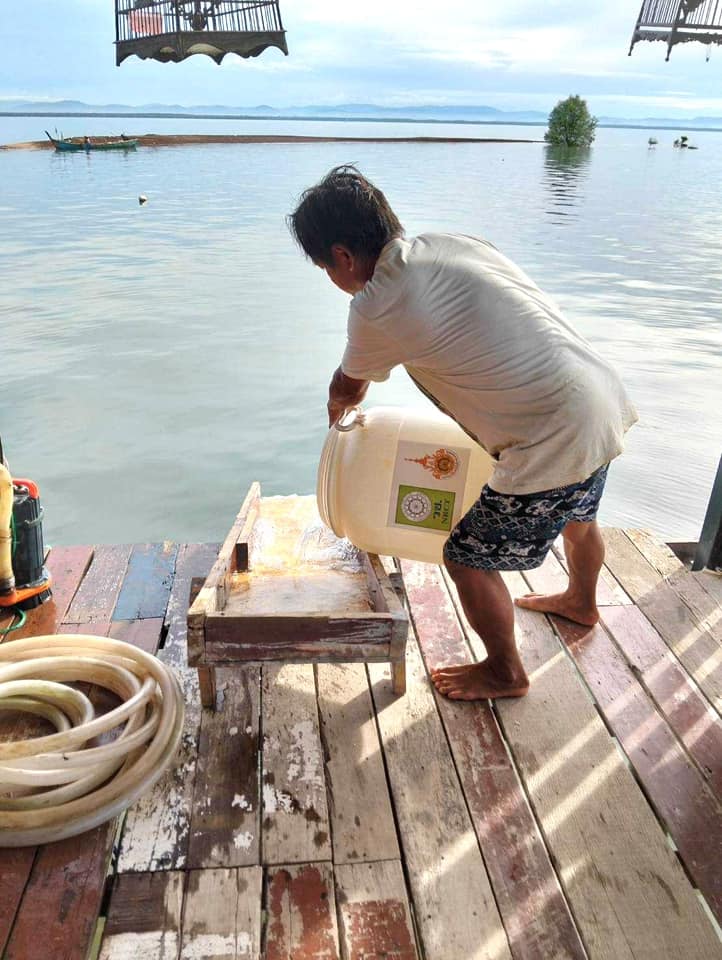
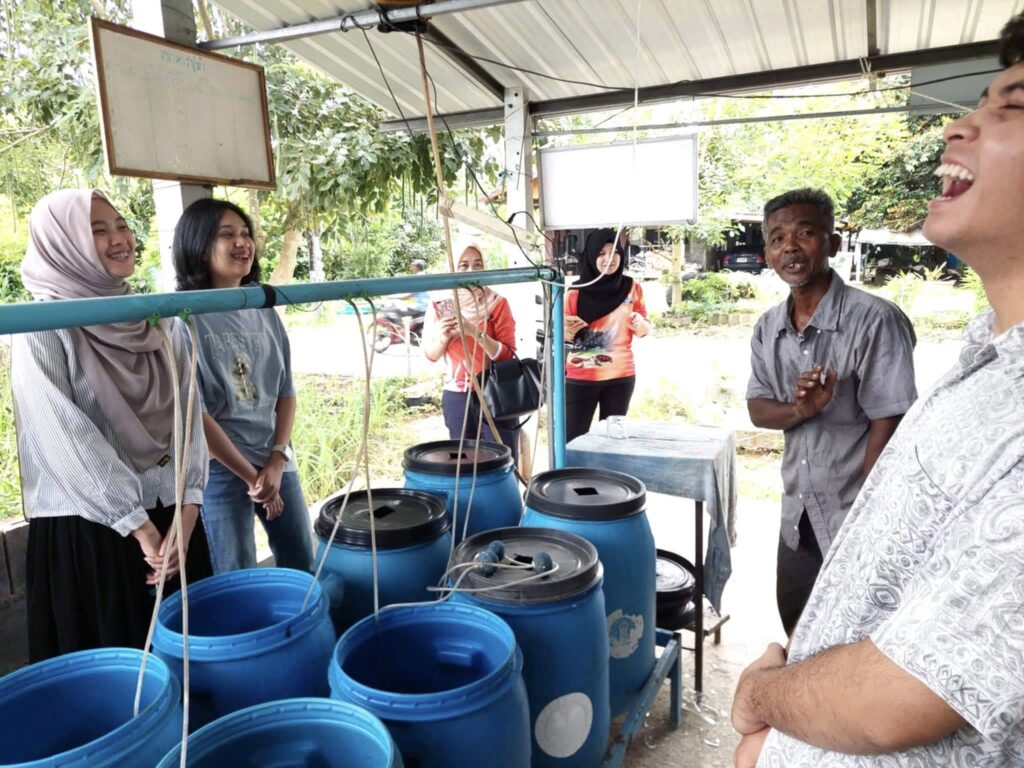
This project delivers several key benefits. Firstly, it supports the conservation and sustainable management of blue swimming crab populations. Secondly, it enhances local fishers’ awareness of the importance of active participation in fisheries management. Finally, it creates an alternative income stream by enabling fishers to sell female crabs after spawning.
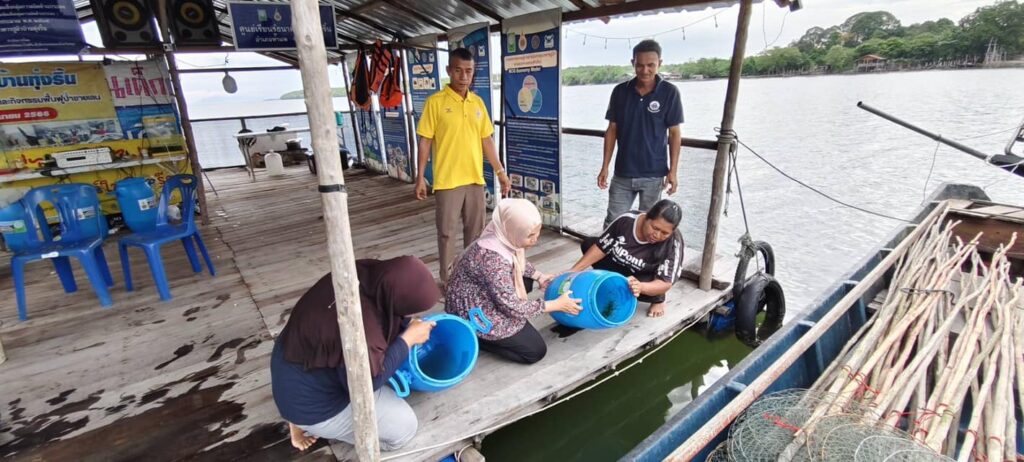
Since 2018, the project has been upgrading 77 crab banks and learning centers across Trang, Satun, and Krabi provinces, providing educational materials and exhibits to promote sustainable crab banking. It has been supplying essential infrastructure for community-based hatcheries, including water and electrical systems, aeration units, and hatching tanks. These ongoing efforts have been strengthening project sustainability and supporting the long-term recovery of blue swimming crab populations in the region.
In conclusion, RUTS Crab Bank Project, the invention and innovation titled “Blue Swimming Crab Bank for Environmental Restoration” was submitted to the international exhibition and competition, EURO POLITEHNICUS 2024, held in Bucharest, Romania from November 22–24, 2024. The project earned high recognition, receiving a Gold Medal for outstanding innovation and two Excellence Awards for exceptional achievement.
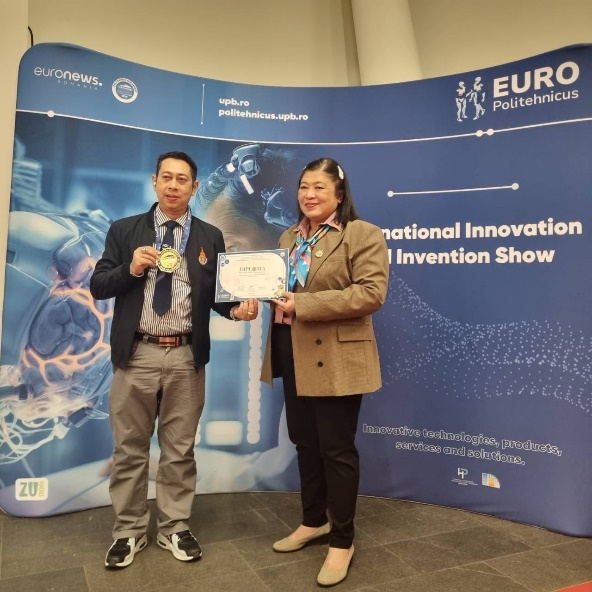
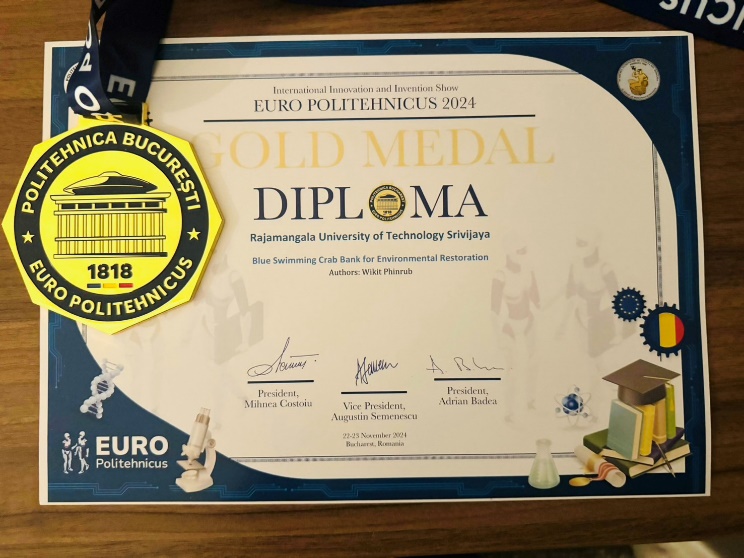
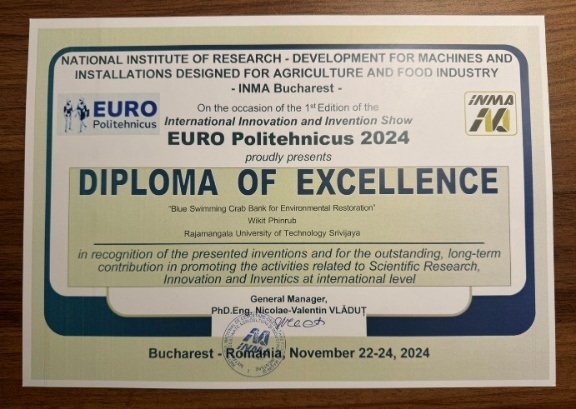
Related Links :
https://thainews.prd.go.th/thainews/news/view/714804/?bid=1
https://www.facebook.com/photo/?fbid=596048486441246&set=pcb.596049609774467
https://www.facebook.com/photo/?fbid=578768561502572&set=pcb.578770894835672
https://fishtech.rmutsv.ac.th/ruts/2024/07/21/14822/crab/
https://www.bcg.in.th/news/blue-crab-bank/


